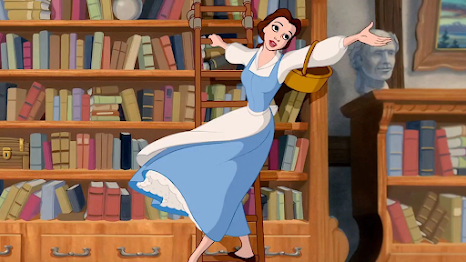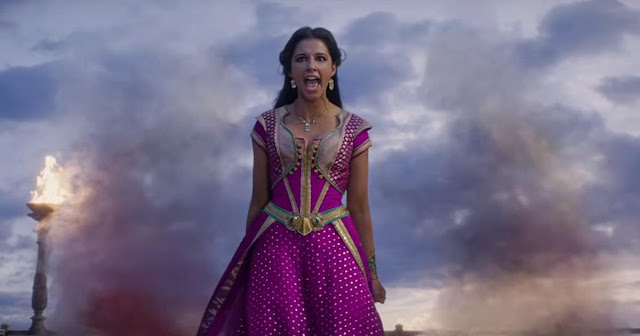Why Princesses Are Migrating from the Screen Back to the Page
It's a well-known fact that most feature films begin their life as books. Even the classic Disney movies that are considered the epitome of children's cinema were mostly adapted from old fairy tales that were published around the late 19th century. However, for the majority of the 20th century, most fairy tale fans were more interested in seeing these stories come to life on the screen than they were in the source material, and who could blame them? Classic Disney movies are visually stunning, beautifully orchestrated, and fleshed out beyond their short-form origins in a way that is less violent and more family-friendly. However, the current decade seems to be a transitional period that takes fairy tale adaptations back to their roots. Countless issues in Hollywood including union strikes and a long-running dearth of creativity make it more difficult than ever to enjoy modern adaptations of classic media. The past decade has also seen a steep increase in fairy tale authors thanks to the ease of self-publishing and the solidarity of the independent writing community, allowing for a myriad of free or discounted books for readers on a budget.
Disney is not the only studio that produces fairy tale adaptations. Yet, due to the popularity of their films, many other studios who have creative ideas for fairy tale retellings either perform poorly or don't even bother trying. One example of this is the Sofia Coppola adaptation of "The Little Mermaid" which was in production at the same time as the recently released Disney remake. This version was meant to be a more accurate take on the fairy tale without the changes that Disney made to the ending and could have introduced an entire generation to the lesser-known origin story. However, the movie was canceled due to "creative differences," which were likely in part related to Universal not wanting to compete with Disney's version that would have come out at the same time or to release something so drastically different from what mainstream audiences expected. How many other creative adaptations might have been shut down in preproduction thanks to Disney's creative monopoly? As a result, we are left with an endless onslaught of live-action Disney remakes that pale in comparison to the originals.
Disney is not the only studio that produces fairy tale adaptations. Yet, due to the popularity of their films, many other studios who have creative ideas for fairy tale retellings either perform poorly or don't even bother trying. One example of this is the Sofia Coppola adaptation of "The Little Mermaid" which was in production at the same time as the recently released Disney remake. This version was meant to be a more accurate take on the fairy tale without the changes that Disney made to the ending and could have introduced an entire generation to the lesser-known origin story. However, the movie was canceled due to "creative differences," which were likely in part related to Universal not wanting to compete with Disney's version that would have come out at the same time or to release something so drastically different from what mainstream audiences expected. How many other creative adaptations might have been shut down in preproduction thanks to Disney's creative monopoly? As a result, we are left with an endless onslaught of live-action Disney remakes that pale in comparison to the originals.
Even these lifeless cash grabs are now under fire. Due to the recent labor union strikes on behalf of the Writers Guild of America and the Screen Actors Guild, Hollywood has effectively shut down, bringing all current productions to a halt. This includes Disney's controversial remake of Snow White, which recently turned heads with yet another questionable leak. It's pretty clear that Hollywood isn't as interested in telling good stories as they are in making easy money, and even their employees are seeing that. Writers and actors have gone on strike due to a combination of lower pay as a result of the streaming era and fear of AI taking over their jobs. However, it already feels like many recent movies were written by AI due to their obvious political agendas and predictable outcomes. For instance, Disney could have done something great with The Nutcracker and the Four Realms back in 2018 since "The Nutcracker" was a story they hadn't tackled yet, but instead, they turned it into another trick villain story with a heroine who was so strong and intelligent that she never needed any help, rendering the titular Nutcracker character useless.
Where are princesses left to turn when the screen has forsaken them? Back to their storybook roots, of course. These stories began on the page, and with nowhere else left to turn, they are returning to it. When Disney was in its Renaissance era in the '90s, Gail Carson Levine was the only mainstream author who dared to publish new interpretations of fairy tales in print form beginning with Ella Enchanted, the book that inspired many modern authors to reimagine these classic stories in their own voices. At that time, publishing a book required aspiring authors to send out hundreds or even thousands of query letters to literary agents in the hopes that one might be interested in representing them for a mainstream publisher like Scholastic or HarperCollins. My hopes of becoming a traditionally published author were dashed after I graduated college and found that there were no agents who were interested in helping me get started with my writing career.
Today, anyone can publish their book online thanks to Amazon's Kindle Direct Publishing. The fairy tale author community is incredibly welcoming to new writers. They help to promote each other through collaborative series like Entwined Tales, Once Upon a Prince, and online events that are open to the public like Brittany Fichter's National Tell a Fairy Tale Day. If you are looking for books you can find at your local library, there are also plenty of authors who still publish the old-fashioned way such as Melanie Dickerson. Independent authors offer many perks that traditional ones do not such as free books in exchange for newsletter sign-ups or Advance Reader Copies (ARCs) in exchange for reviews. Diving into the world of modern fairy tale adaptations is easy since these authors work together to advocate for each other. By following one author's newsletter, you will fall into a magical rabbit hole of books, events, and freebies to try out from other writers who do similar work.
As the spotlight dims on screen adaptations and Hollywood faces challenges of creativity and labor unrest, fairy tales and princesses are making a triumphant return to their roots. The power of books as a medium for storytelling is resurging, aided by the rise of independent authors and the accessibility of self-publishing platforms. With a supportive and collaborative community, readers now have a wealth of modern fairy tale adaptations to explore. As the pages turn, these timeless stories find new life and enchantment, reminding us that sometimes the most captivating magic can be found between the covers of a book. So, let us embark on this literary journey and rediscover the wonder and allure that fairy tales and princesses bring, as they leave the screens behind and find solace in the pages of our favorite books.













Comments